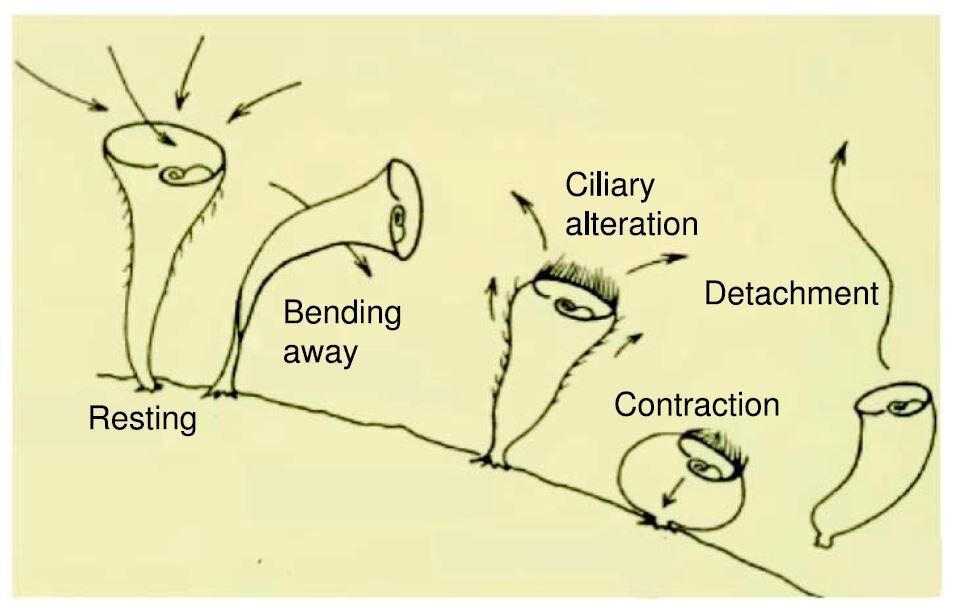Once, single-cell life claimed sole dominion over the earth. For some three billion years, unfathomable generations of unicellular organisms ate, grew and reproduced among only each other. They evolved into predators and prey, thrived and spread across the primordial waters and land, and formed complex and dynamic ecosystems in every ecological niche on the planet. Around 600 million years ago, some even crossed the threshold into multicellularity.
Today, however, single-cell organisms are synonymous with notions like primitive and simple. Yet, new research suggests that they may be capable of much more than their very distant human cousins might suspect.
In an effort to replicate an experiment conducted over a century ago, systems biologists at Harvard Medical School now present compelling evidence confirming at least one single-cell organism—the strikingly trumpet-shaped Stentor roeselii—exhibits a hierarchy of avoidance behaviors.
